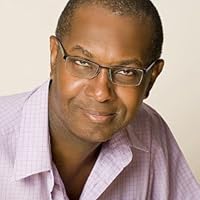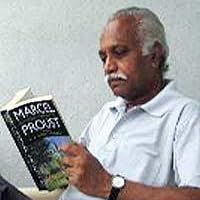Judiciary Quotes
Quotes tagged as "judiciary"
Showing 1-23 of 23
“If logic and reason, the hard, cold products of the mind, can be relied upon to deliver justice or produce the truth, how is it that these brain-heavy judges rarely agree? Five-to-four decisions are the rule, not the exception. Nearly half of the court must be unjust and wrong nearly half of the time. Each decision, whether the majority or minority, exudes logic and reason like the obfuscating ink from a jellyfish, and in language as opaque. The minority could have as easily become the decision of the court. At once we realize that logic, no matter how pretty and neat, that reason, no matter how seemingly profound and deep, does not necessarily produce truth, much less justice. Logic and reason often become but tools used by those in power to deliver their load of injustice to the people. And ultimate truth, if, indeed, it exists, is rarely recognizable in the endless rows of long words that crowd page after page of most judicial regurgitations.”
― How to Argue and Win Every Time: At Home, At Work, In Court, Everywhere, Every Day
― How to Argue and Win Every Time: At Home, At Work, In Court, Everywhere, Every Day
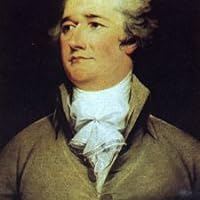
“No man ought certainly to be a judge in his own cause, or in any cause in respect to which he has the least interest or bias.”
― The Federalist Papers
― The Federalist Papers
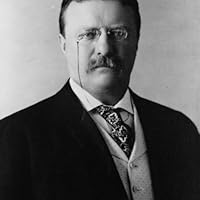
“The President and the Congress are all very well in their way. They can say what they think they think, but it rests with the Supreme Court to decide what they have really thought.”
―
―

“The judicial wheel is rounded with equality, oiled with honour and functions smoothly with honesty – principally when both members of the Bench and Bar shoulder their responsibilities seriously.”
― Pt. Kanhaiya Lal Misra - My Father
― Pt. Kanhaiya Lal Misra - My Father

“When the judiciary is the midwife of tyranny, the law becomes the most lethal weapon of a fascist state.”
―
―
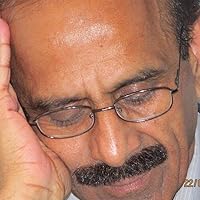
“The judiciary perpetuates a breath of state structure. If it fails to purify and justify itself; consequently, all of its systems, evince a collapse. Indeed, it embraces only the destruction.”
―
―

“The judiciary is such a coin that has justice and injustice at its two sides. Accordingly, one, who wins, feels justice; whereas, one, who loses, feels the injustice. Consequently, it remains just the force of a consensus; however, not proper justice”
―
―

“In general, the Fascist and Nazi regimes had no serious difficulty establishing control over public services. They largely protected civil servants’ turf from party intrusion and left their professional identity intact. Civil servants were frequently in broad sympathy with fascist regimes’ biases for authority and order against parliament and the Left, and they appreciated enhanced freedom from legal restraint. Eliminating Jews sometimes opened up career advancement.
The police were the key agency, of course. The German police were very quickly removed from the normative state and brought under Nazi Party control via the SS. Himmler, supported by Hitler against rivals and the Ministry of the Interior, which traditionally controlled the police, ascended in April 1933 from political police commander of Bavaria (where he set up the first concentration camp at Dachau) to chief of the whole German police system in June 1936.
This process was facilitated by the disgruntlement many German police had felt for the Weimar Republic and its “coddling of criminals,” and by the regime’s efforts to enhance police prestige in the eyes of the public. By 1937, the annual congratulatory “Police Day” had expanded from one day to seven. Initially the SA were deputized as auxiliary Exercising Power police in Prussia, but this practice was ended on August 2, 1933, and the police faced no further threat of dilution from party militants. They enjoyed a privileged role above the law as the final arbiters of their own form of unlimited “police justice.”
While the German police were run more directly by Nazi Party chiefs than any other traditional state agency, the Italian police remained headed by a civil servant, and their behavior was little more unprofessional or partisan than under previous governments. This is one of the most profound differences between the Nazi and Fascist regimes. The head of the Italian police for most of the Fascist period was the professional civil servant Arturo Bocchini. There was a political police, the OVRA, but the regime executed relatively few political enemies.
Another crucial instrument of rule was the judiciary. Although very few judges were Nazi Party members in 1933, the German magistracy was already overwhelmingly conservative. It had established a solid track record of harsher penalties against communists than against Nazis during the 1920s. In exchange for a relatively limited invasion of their professional sphere by the party’s Special Courts and People’s Court, the judges willingly submerged their associations in a Nazi organization and happily accepted the powerful role the new regime gave them.71 The Italian judiciary was little changed, since political interference had already been the norm under the liberal monarchy. Italian judges felt general sympathy for the Fascist regime’s commitment to public order and national grandeur.”
― The Anatomy of Fascism
The police were the key agency, of course. The German police were very quickly removed from the normative state and brought under Nazi Party control via the SS. Himmler, supported by Hitler against rivals and the Ministry of the Interior, which traditionally controlled the police, ascended in April 1933 from political police commander of Bavaria (where he set up the first concentration camp at Dachau) to chief of the whole German police system in June 1936.
This process was facilitated by the disgruntlement many German police had felt for the Weimar Republic and its “coddling of criminals,” and by the regime’s efforts to enhance police prestige in the eyes of the public. By 1937, the annual congratulatory “Police Day” had expanded from one day to seven. Initially the SA were deputized as auxiliary Exercising Power police in Prussia, but this practice was ended on August 2, 1933, and the police faced no further threat of dilution from party militants. They enjoyed a privileged role above the law as the final arbiters of their own form of unlimited “police justice.”
While the German police were run more directly by Nazi Party chiefs than any other traditional state agency, the Italian police remained headed by a civil servant, and their behavior was little more unprofessional or partisan than under previous governments. This is one of the most profound differences between the Nazi and Fascist regimes. The head of the Italian police for most of the Fascist period was the professional civil servant Arturo Bocchini. There was a political police, the OVRA, but the regime executed relatively few political enemies.
Another crucial instrument of rule was the judiciary. Although very few judges were Nazi Party members in 1933, the German magistracy was already overwhelmingly conservative. It had established a solid track record of harsher penalties against communists than against Nazis during the 1920s. In exchange for a relatively limited invasion of their professional sphere by the party’s Special Courts and People’s Court, the judges willingly submerged their associations in a Nazi organization and happily accepted the powerful role the new regime gave them.71 The Italian judiciary was little changed, since political interference had already been the norm under the liberal monarchy. Italian judges felt general sympathy for the Fascist regime’s commitment to public order and national grandeur.”
― The Anatomy of Fascism

“Blacks routinely get the worst of it in the judicial process, particularly when they are poor...
The United States sentencing commission found that blacks get sentences 19% longer than whites do, for the same offense, even after controlling for criminal history and other variables. The darker an African-American's complexion, the longer the sentence, researchers found. Blacks are also more likely to be found guilty and be sentenced to death.”
― Tightrope: Americans Reaching for Hope
The United States sentencing commission found that blacks get sentences 19% longer than whites do, for the same offense, even after controlling for criminal history and other variables. The darker an African-American's complexion, the longer the sentence, researchers found. Blacks are also more likely to be found guilty and be sentenced to death.”
― Tightrope: Americans Reaching for Hope

“No hay defensa posible contra esta judicatura, ha que confesar. Haga la confesión en la próxima oportunidad que se le presente. Solo así tendrá la posibilidad de escapar”
― The Trial
― The Trial

“The judiciary is such a coin that has justice and injustice at its two sides. Accordingly, one, who wins, feels justice; whereas, one, who loses, feels injustice. Consequently, it remains just the force of a consensus; however, not proper justice.”
―
―
“India's Judges fare better than its gods as Contempt of Court protects their dignity while its Constitution throws the latter to the wolves for Muslims proclaim that there's no god but Allah and the evangelists propagate that the Hindu deities are false”
―
―
“The unfortunate thing is that as you strive to free the corrupt because of politics, you don't free them of their insatiable greed for public coffers. A kleptomaniac will always be a kleptomaniac . Even if you dress a cobra and place it in the pulpit, the poison is still in its belly. When the opportunity to bite will present itself, pray that your children will not be the victims.”
―
―
“When the president theanthropize himself in matters leadership and governance and takes the constitution and its guardians secondary to his decisions, the chief Justice should assume the role of the deicide of the alloyed beast. If he shows signs of the faint-hearted, the judiciary firewalls become weak to not withstand the threats posed by the executive thus turning into the executive's de facto corporation. This is how autocracy is midwived!”
―
―

“It was actually Thomas Jefferson himself who said 'we might as well ask a man to wear the coat that fitted him when he was a boy' as expect future generations to live under what he called 'the regime of their barbarous ancestors.' So even the founders that these kind of dead-hand originalists claim fidelity to understood better than their ideological descendants — today's judicial so-called conservatives — the importance of keeping with the times. And we deserve judges and justices who understand that.”
―
―
“When the law makers don't respect the law.
The law becomes a joke. Those who have authority lose power. The justice system gets mocked.”
―
The law becomes a joke. Those who have authority lose power. The justice system gets mocked.”
―
All Quotes
|
My Quotes
|
Add A Quote
Browse By Tag
- Love Quotes 97.5k
- Life Quotes 76k
- Inspirational Quotes 73k
- Humor Quotes 44k
- Philosophy Quotes 29.5k
- Inspirational Quotes Quotes 27k
- God Quotes 26k
- Truth Quotes 23.5k
- Wisdom Quotes 23.5k
- Romance Quotes 23k
- Poetry Quotes 22k
- Death Quotes 20k
- Happiness Quotes 18.5k
- Life Lessons Quotes 18.5k
- Hope Quotes 18k
- Faith Quotes 18k
- Quotes Quotes 16.5k
- Inspiration Quotes 16.5k
- Spirituality Quotes 15k
- Religion Quotes 15k
- Motivational Quotes 15k
- Writing Quotes 15k
- Relationships Quotes 14.5k
- Life Quotes Quotes 14k
- Love Quotes Quotes 14k
- Success Quotes 13.5k
- Time Quotes 12.5k
- Motivation Quotes 12k
- Science Quotes 11.5k
- Motivational Quotes Quotes 11.5k


